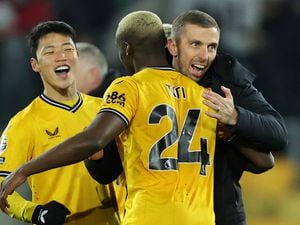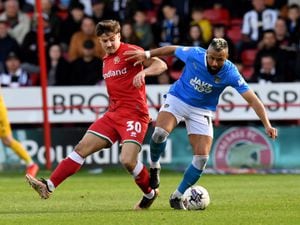Matt Maher: Do not miss this chance to improve football for all
Blink and you risked missing the European Super League.
Launched on Sunday night, just 48 hours later it had been brought crashing back down to earth.
This was an episode worthy of almost every adjective written about it, comfortably among the most extraordinary couple of days football has ever witnessed away from the pitch.
The final result was a heartening if all too rare victory for supporter power – and for the 12 clubs, including six from the Premier League, who attempted an audacious breakaway the realisation there is a limit to their influence.
But this cannot not be the end of the story. The momentum gained in foiling an attempted coup must now be channelled into addressing the imbalances at its root cause.
Much as it is easy and right to criticise the likes of Joel Glazer and John W Henry, in their thinking a Super League, effectively acting as a protectionist racket, was the next logical step in a sport where the gap between the haves and the have-nots has been allowed to grow so wide and where the hunger for money now consistently usurps the pursuit of trophies.
Jose Mourinho stood just one win away from delivering Tottenham’s first major honour in more than a decade, yet he was still sacked due to fears the club might miss out on a top four Premier League finish and Champions League riches.
Thanks to the collective effort of fans, players and managers, coupled with the incompetence of those trying to put it off, this particular attempt at a breakaway league was quickly halted.
Yet the culture of greed which gave life to the idea still remains endemic in the sport. Until it is properly eradicated, then at some point in the not too distant future Super League plans will be back.
In some respects, they might already be. Though the 12 ESL clubs might currently stand wounded and a little embarrassed, they still wield plenty of power. They remain the ones most likely to benefit from Uefa’s Champions League reforms, approved almost on the quiet amid the fury at the start of the week, which will see at least two places in a revamped competition awarded on historical performances from 2023. It is expected there will now be pressure on Uefa to scrap this rule. Just how prepared president Aleksander Ceferin is to back up his scathing words from earlier this week with action, we should quickly find out. This should not be a case of forgive and forget.
For supporters, recent days have provided the realisation they can still have a voice while demonstrating just what can be achieved when working together.
Perhaps the biggest influence fans had is on mobilising the players. While it would be nice to think the likes of Glazer and Henry were unnerved by the backlash of their own supporters, it is far more likely the fury of Harry Maguire, Jordan Henderson and Jurgen Klopp – men without whom their plan could not function – played a more significant part in their U-turn.
The other 14 Premier League clubs, meanwhile, remained united in their opposition though this was hardly surprising, considering how they had been left completely in the cold.
It will be interesting to see just how ready they now are to attempt reform. For all the impressive statements and talk of maintaining the integrity of the football pyramid, top-flight clubs haven’t exactly bent over backwards to assist their lower-league counterparts during the pandemic. It is perhaps a little too hopeful to think the self-interest and mistrust which typically hold sway might have been cured over the course of a couple of days.
If genuine change is to be achieved, the biggest role will be played by the government, who have launched a fan-led review of the sport.
Again, it is easy to be cynical. An administration which has taken a battering for its handling of the pandemic might see football as an opportunity for some positive PR.
Yet in truth the review had been in discussion for months. Here then, perhaps, is the chance to finally begin reversing the tide which for nearly 30 years has seen most of the sport’s riches awarded to the select few.
In addition to getting a better deal for fans and giving them more of a say in how clubs are run, there needs to be a move toward levelling out the playing field, not just in the Premier League but through the EFL and also the National League, where clubs are attempting to force a vote of no confidence in the board after more than a year of mismanagement. A new independent regulator for the sport might be the answer. The review will consider it but crucially this needs to be about changing the sport’s ideology as much as the rules.
For some time now it has been clear the structure of English football is broken. The pandemic exposed the faultlines and now a botched breakaway league has hopefully provided the necessary energy to begin fixing them.
In the short-term, there remains the question of what to do with the shameful six? Since their rapid about-turns on Tuesday evening there has been plenty of talk of how any sanction should be aimed at the owners and not also punish the fans. Fair as that might be, it is difficult to achieve. Neither was there much consideration given to the supporters of Blues, Sheffield Wednesday or Wigan when their clubs were hit with points deductions due to financial mismanagement.
Draconian measures have never been the Premier League’s style but at the very least the breakaway clubs need their wings clipped and their influence reduced.
They have created, inadvertently, perhaps a once-in-a-generation chance for English football to be redrawn for the better. It must not be missed.





